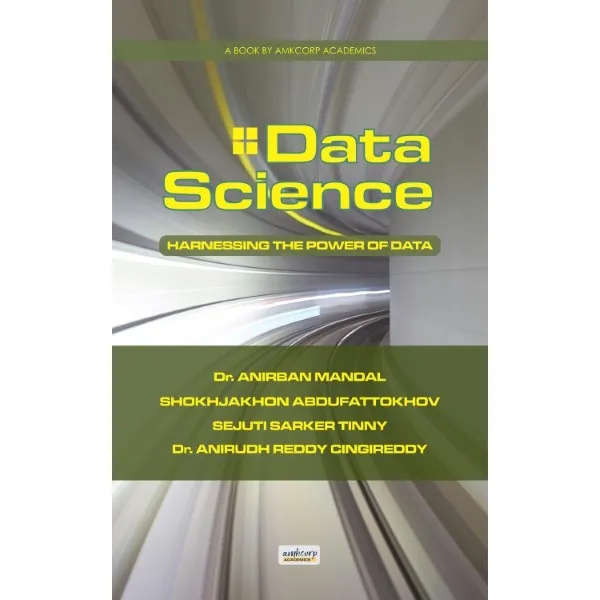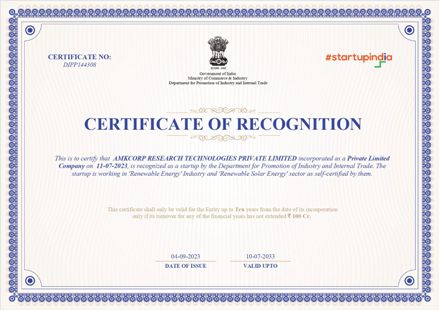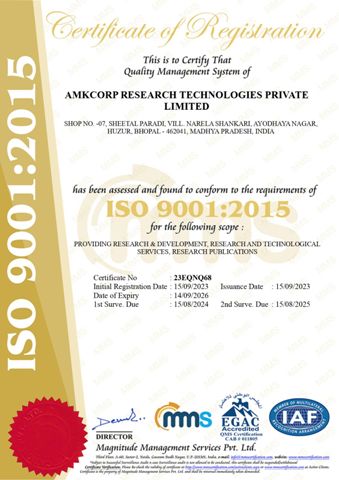Description
“Data Science: Harnessing the Power of Data” is a comprehensive guide that delves into the diverse and dynamic field of data science. With ten meticulously crafted chapters, this book covers a wide array of topics ranging from foundational concepts to advanced methodologies and future trends in data science.
In Chapter 1, “Introduction to Data Science,” readers are introduced to the rise of data science, its definition, historical milestones, and its cross-disciplinary nature. The chapter explores the applications of data science across industries, its impact on decision-making, and the challenges it presents, emphasizing the importance of ethical data practices.
Chapter 2, “Foundations of Statistics and Mathematics,” provides readers with a solid grounding in statistical fundamentals, probability, and mathematical tools essential for data analysis. It discusses multivariate analysis techniques, linear algebra, and advanced statistical concepts, along with their real-world applications and challenges in statistical modeling.
Moving on to Chapter 3, “Programming for Data Science,” readers learn about choosing the right programming language, data manipulation using Python and R, data visualization techniques, and best practices in code structure and optimization. The chapter also covers version control, collaborative coding, and deploying data science solutions.
In Chapter 4, “Data Collection and Cleaning,” strategies for effective data collection, web scraping, handling missing data, outlier detection, and data transformation techniques are discussed. The chapter also addresses ethical considerations in data collection and cleaning processes.
Chapter 5, “Exploratory Data Analysis (EDA),” guides readers through uncovering patterns and trends, descriptive statistics, data visualization, advanced EDA techniques, feature engineering, time series analysis, and dimensionality reduction methods.
Chapter 6, “Machine Learning Fundamentals,” introduces machine learning concepts, types, feature selection, model evaluation metrics, hyperparameter tuning, cross-validation techniques, ensemble learning, and real-world applications, while discussing challenges and ethics in machine learning.
In Chapter 7, “Advanced Machine Learning Algorithms,” readers explore deep learning, CNNs, RNNs, transfer learning, GANs, reinforcement learning, explainability, limitations, and ethical considerations in advanced machine learning, along with case studies.
Chapter 8, “Big Data and Data Engineering,” covers understanding big data, Hadoop, Apache Spark, distributed storage systems, scalable data pipelines, real-time data processing, data warehousing, best practices, challenges, and ethical considerations.
Chapter 9, “Data Ethics and Privacy,” addresses the importance of ethical data practices, privacy concerns, regulatory compliance, bias, fairness, explainability, accountability, responsible data governance, ethical decision-making frameworks, and case studies.
Finally, Chapter 10, “Future Trends in Data Science,” discusses the evolving landscape, emerging technologies, data science applications, continuous learning, ethical challenges, democratization, predictions for the future, and concludes with the ongoing journey of data science.
This book serves as a comprehensive resource for students, professionals, and enthusiasts seeking to navigate the complexities of data science and unlock its transformative potential in today’s digital age.







Reviews
There are no reviews yet.